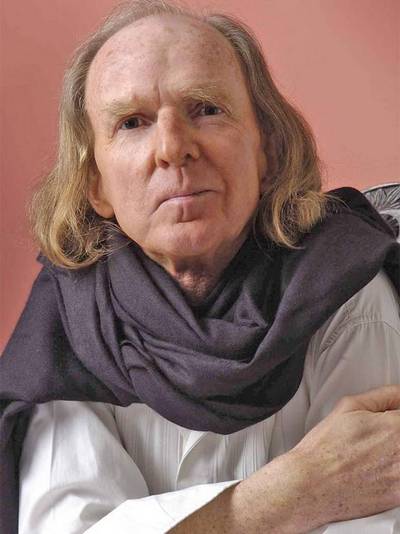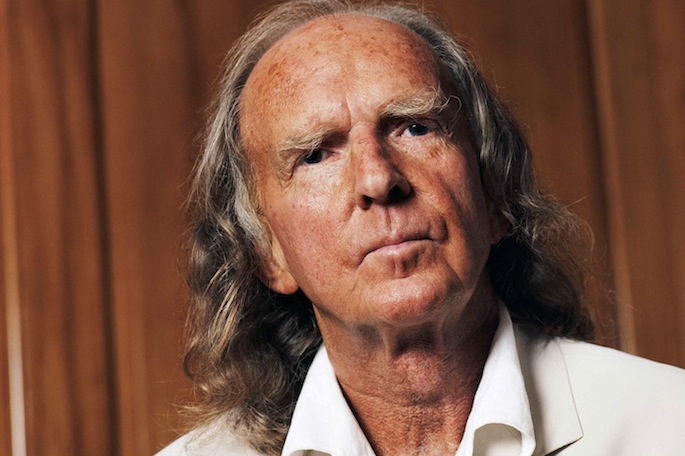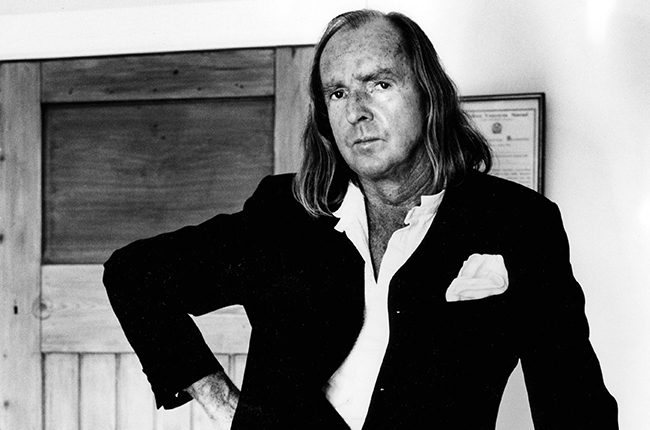John Tavener (John Travener)

Tavener was born on 28 January 1944 in Wembley, London. His parents ran a family building firm and his father was also an organist at St Andrew’s Presbyterian Church in Frognal, Hampstead. At the age of 12, Tavener was taken to Glyndebourne to hear Mozart’s The Magic Flute, a work he loved for the rest of his life. That same year he heard Stravinsky’s most recent work, Canticum Sacrum, which he later described as “the piece that woke me up and made me want to be a composer”. Tavener became a music scholar at Highgate School (where a fellow pupil was John Rutter). The school choir was often employed by the BBC in works requiring boys’ voices, and so Tavener gained choral experience singing in Mahler’s Third Symphony and Orff’s Carmina Burana. He started to compose at Highgate, and also became a sufficiently proficient pianist to perform Beethoven’s Fourth Piano Concerto and, in 1961 with the National Youth Orchestra, Shostakovich’s Piano Concerto No. 2. He also became organist and choirmaster in 1961 at St John’s Presbyterian Church, Kensington (now St Mark’s Coptic Orthodox Church), a post he held for 14 years. Tavener entered the Royal Academy of Music in 1962, where his tutors included Sir Lennox Berkeley. During his studies there he decided to give up the piano and devote himself to composition.
Tavener first came to prominence in 1968 with his dramatic cantata The Whale, based on the Old Testament story of Jonah. It was premièred at the London Sinfonietta’s début concert, which was also the opening concert of the Queen Elizabeth Hall. Tavener’s younger brother, Roger, was then doing some building work on Ringo Starr’s home and, gaining the musician’s interest, persuaded the Beatles to have The Whale recorded by Apple Records and released in 1970. The following year Tavener began teaching at Trinity College of Music, London. Other works by Tavener released by Apple included his A Celtic Requiem, which impressed Benjamin Britten enough to persuade Covent Garden to commission an opera from Tavener: the ultimate result, to a libretto by playwright Gerard McLarnon, was Thérèse. When staged in 1979 the opera was thought too static to be a successful drama. Tavener had also been deeply affected by his brief 1974 marriage to the Greek dancer Victoria Maragopoulou. His chamber opera A Gentle Spirit (1977), with a libretto by McLarnon based on a story by Fyodor Dostoyevsky, concerns a pawnbroker whose marriage fails to the extent that his wife commits suicide. It has been deemed “far superior to Thérèse, with the internal drama more suited to the stage”. Significantly, it also touched on Russian Orthodoxy, to which McLarnon had been a convert for several years.
Tavener’s subsequent explorations of Russian and Greek culture resulted in Akhmatova Requiem: this failed to enjoy success either at its Edinburgh Festival premiere in 1981, or at its Proms’ performance the following week where many of the audience left before it finished. Of more lasting success was Tavener’s short unaccompanied four-part choral setting of William Blake’s poem “The Lamb”, written one afternoon in 1982 for his nephew Simon’s third birthday. This simple homophonic piece is usually performed as a Christmas carol. Later prominent works include The Akathist of Thanksgiving of 1987, written in celebration of the millennium of the Russian Orthodox Church; The Protecting Veil, first performed by cellist Steven Isserlis and the London Symphony Orchestra at the 1989 Proms; and Song for Athene (1993). The two choral works were settings of texts by Mother Thekla, a Russian Orthodox abbess who was Tavener’s long-time spiritual adviser until her death in 2011. Song for Athene in particular gained world-wide exposure when performed at the funeral of Diana, Princess of Wales in 1997.
Tavener’s Fall and Resurrection, first performed in 2000, used instruments such as ram’s horn, ney flute and kaval. It was dedicated to the Prince of Wales, with whom Tavener formed a lasting friendship. In 2003 Tavener composed the exceptionally large work The Veil of the Temple (which was premièred at the Temple Church, London), based on texts from a number of religions. Identified by Tavener as “the supreme achievement of my life”, it is set for four choirs, several orchestras and soloists and lasts at least seven hours. Prayer of the Heart, written for and performed by Björk, was premiered in 2004. In 2007 Tavener composed The Beautiful Names, a setting of the 99 names of God in the Muslim tradition, sung in Arabic.
It had been reported, particularly in the British press, that Tavener left Orthodox Christianity to explore a number of other different religious traditions, including Hinduism and Islam, and became a follower of the Traditionalist philosopher Frithjof Schuon. In an interview with The New York Times, conducted by British music journalist Michael White, Tavener said: “I reached a point where everything I wrote was terribly austere and hidebound by the tonal system of the Orthodox Church, and I felt the need, in my music at least, to become more universalist: to take in other colors, other languages.” The interviewer also reported at the time that he “hasn’t abandoned Orthodoxy. He remains devotedly Christian.” Speaking on the BBC Four television programme Sacred Music in 2010, Tavener described himself as “essentially Orthodox”. He reiterated both his desire to explore the musical traditions of other religions, and his adherence to the Orthodox Christian faith, on Start the Week, recorded only days before his death and broadcast on 11 November 2013.
In 1974 he married the Greek dancer Victoria Maragopoulou, but it only lasted eight months. In 1991 he married Maryanna Schaefer with whom he had three children, Theodora, Sofia and Orlando. He suffered from considerable health problems throughout his life. He had a stroke in his thirties, heart surgery and the removal of a tumour in his forties, and suffered two successive heart attacks which left him very frail. He was diagnosed with Marfan syndrome in 1990. Lady Tavener broadcast a charity appeal on BBC Radio 4 in October 2008 on behalf of the Marfan Trust. Tavener had an interest in classic cars, owning an Armstrong Siddeley Sapphire, a Rolls-Royce Silver Shadow, a Jaguar XJ6 and a Bentley Mulsanne Turbo.
Tavener died, aged 69, on 12 November 2013 at his home in Child Okeford, Dorset. In the music world, composers John Rutter and Sir Peter Maxwell Davies, cellist Steven Isserlis, Neil Portnow, president of the National Academy of Recording Arts and Sciences, Roger Wright, controller of BBC Radio 3 and director of the Proms, and soprano Patricia Rozario, paid tribute. A tribute was also received from Charles, Prince of Wales. Tavener’s funeral was held at the Anglican Cathedral in Winchester on 28 November 2013. The service was Orthodox, and presided over by Archbishop Gregorios of Thyateira, the representative of the Ecumenical Patriarch, and the most senior Orthodox bishop currently in the UK. Some 700 mourners attended.
Born
- January, 28, 1944
- Wembley, London, United Kingdom
Died
- November, 12, 2013
- Child Okeford, United Kingdom



